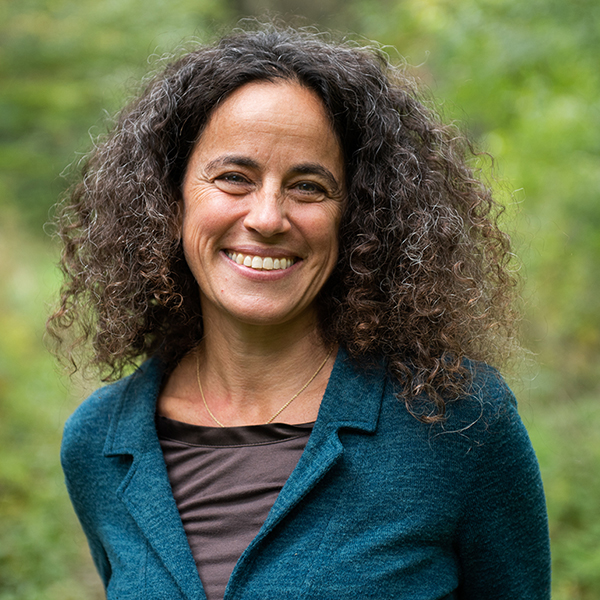With the final report of Canada’s Ecofiscal Commission out and its clear support for carbon pricing – most notably, a 40-cent tax hike on a litre of gas over the next decade – making headlines, Christopher Ragan, commission chairman, can’t help thinking about how the now concluded six-year project got its start. Like most origin stories, it began at a low point – at least for Ragan.
In 2009, Ragan, on sabbatical from teaching economics at McGill, served as a special advisor to the then Conservative government. One of his tasks was to prepare a brief on environmental issues for finance minister Jim Flaherty. However, the resulting policy package was deemed too costly to be implemented.
“I thought, ‘Okay, that’s good, they’ll propose another, better policy,’” Ragan recalls, speaking from his office where he currently directs the Max Bell School for Public Policy. “In fact, they did nothing; then presented one that was worse. That’s when I experienced what I call my policy-depression phase.
“What does that look like? Well, you stare out your office window and wonder what you have to do to get good policy around here.”
What you have to do, Ragan eventually realized, is “get a bunch of smart people together and lock them in a room for five or six years.”
In the case of the Ecofiscal Commission, that meant bringing on board 12 economists from different regions across the country, with varying philosophies and viewpoints but one objective in mind: to meet Canada’s international commitments, like those in the Paris Agreement, to reducing greenhouse gas emissions (GHG) by 2030.
But if Ragan had any illusions about how hard this objective would be to achieve, he had a wake-up call early on. Surprisingly, it came from the family foundations he approached for funding.
“Our first application was rejected. But we were encouraged to come back and ask for more money. Basically, we were being told we were going to need a bigger boat.”
The family foundations – including the Max Bell, Ivey, Peter Gilgan, Metcalf, and J.W. McConnell foundations – who supplied the funding for much of the commission’s roughly million-dollar annual budget also ended up doing something they never do. They worked together.
Ragan remembers being at a lunch with representatives from the foundations and asking if all of them working together was common on a project like this. “They said, ‘No, we never do this.’”
For Ragan, this highlighted the importance of climate policy and the importance of reaching consensus on it. “We knew we were entering into a very polarized debate and we wanted to build something that would be, I guess, depolarizing.”
As a consequence, the advisory board has consistently reached across the political spectrum – including leaders like Preston Manning, Paul Martin, Jean Charest and Bob Rae. There have always been leading business people and people from civil society on the board as well.
“We wanted it clear we were not pro-business or labour, conservative or liberal. People who agreed on nothing else agreed on this issue,” Ragan says.
Along the way, the commission has issued 16 reports, produced a comprehensive website, conducted press interviews, published op-eds, produced videos and talked to anyone who wanted to talk to them about climate policy. Still, for all its signalling that it was interested in “just good old down-the-middle-of-the–road policy,” Ragan acknowledges the commission has been single-minded about the best way to approach climate issues.
“Everything we’ve done was about putting a price on pollution and recycling that revenue,” Ragan acknowledges. “We’re economists and think in particular about the cost-effectiveness of policies. We were very much a one-trick pony.”
In the case of the final report, that trick is clearly identified. The commission’s preference for carbon pricing, compared to options like subsidies or regulations, is bluntly stated in its concluding executive summary: “The evidence from this report is consistent with numerous other studies: carbon pricing is the most cost-effective way to reduce GHG emissions … (and) get Canada to its 2030 target at the lowest possible cost to the economy.”
Still, Ragan acknowledges that a gasoline tax-increase, for instance, may prove harder to justify politically than economically or environmentally. Even a recent, favourable Globe and Mail op-ed, included a warning that “taking the path this report recommends will take political courage.”
Certainly, the commission’s main conclusion will be opposed by Conservative premiers like Alberta’s Jason Kenney and Ontario’s Doug Ford. Both campaigned against carbon pricing and remain dismissive of it. In addition, several provinces are challenging carbon taxes in court.
Like the report itself, Ragan seems reluctant to endorse other options, though he’s offering one piece of advice – flexibility. “If you can’t abide carbon pricing and want to use economy-wide regulations, say, then allow companies and consumers to find a way to lower emissions to a designated amount and trust they’ll come up with the lowest cost way to do it.”
Personally, Ragan admits he’s also reluctant to move on from the Ecofiscal Commission. So while he knows whatever coverage, even controversy, the final report’s generating now won’t last long – “we all have a short attention span” – he suspects he’ll keep talking about these issues for a long time.
“We won’t be producing any new reports, but the website will be maintained. My hope is that this commission has a shelf life – that its work will be there to inform this debate going forward.”


